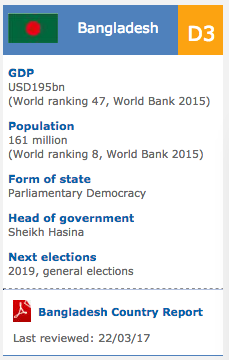Latvia: Latvia Health system «turns its back» on patients
2013/01/09

It’s high time to admit that the free of charge medicine that is so much advertised in Latvia has not actually been on the agenda for at least the past 20 years. There is an urgent need for fiercer competition among providers of state-paid medical services. Thus, medical establishments will care more for quality and patients’ satisfaction. Finally, the whole sector will then be directed towards the residents of Latvia, Leons Platacis, Board Chairman at the clinic Premium Medical, said in an interview.
Judging from numerous politicians and medical experts’ statements, the Latvian health system is on the brink of collapse. It was also pointed out by Zatlers Reform Party leader and doctor Valdis Zatlers in late 2010.
Has anything changed now? What is your overall impression of the system?
It’s far from an ideal one, indeed, however, it would not be correct to say that it is on the brink of collapse. There are many establishments, private and public, that have qualified specialists who ensure quality health care to numerous residents of Latvia.
What we see very clearly is the inefficient way the state is managing the health sector. This is greatly determined by the management of the sector and medical establishments, which work in favour of their own interests rather than operating for the benefit of the whole society.
Before the crisis, the state injected more and more funds in the sector, therefore, the problems of the system were not that apparent as they are when the financial means are limited.
How did we round up with such a health system? What were the mistakes?
We must look now twenty years back when Latvian politicians chose the medical sector as a way to gain cheap popularity. We can see this in the fact that numerous doctors have taken up the post of a deputy during these twenty years.
Despite strong ties with the health sector brought them quite many votes, no one has so far managed to change the system in favour of its users – people. Most often, politicians have used the sector in their own interests. Apart from that, there are also, of course, various invisible factors that play a role as well. It’s, for example, bureaucracy and influential specialists-monopolists. There is also the pharmacy sector, whose representatives have been lobbying their interests pretty successfully.
What are the key problem in the health system and what can be left as it is?
Speaking about the public system, the main issue is the focus of its activities. When the crisis struck, the sector was made to cut costs, which became its primary goal. It was called efficiency boost, however, people still lack certainty over the public system really working in the interests of each and every individual as well as the society in general. It’s no secret that it is exactly the medical system that is trusted the least among all public sectors.
Similarly, also the concept of family doctors is not paying back despite family doctors of the public sector have been transferred more and more functions.
What medicines would you suggest to the Latvian health system, namely, what could be the solutions?
In this sense, the health system is far from a unique one. What we see is that the state is at the moment managing the whole public sector and limiting private establishments partnership in providing state-paid services.
The best medicines would be to boost competition among providers of state-paid services by maximally involving also private medical establishments and doing away with the current limitations. If competition grows tougher, establishments will turn more attention to the quality and patients’ satisfaction. Thus the system would then be directed towards its users. It’s “money follows the patient” principle with no limitations. Each and every individual can spend the state funds he deserves in any legal Latvian medical establishment. Thus the patient is given a chance to choose whether he wants to pay extra money for higher quality or not.
The current practice, which forbids the state’s contractual partners to determine the extra payment in addition to the part paid by the state, as well as the quotas system controlled by officials are hardly encouraging to strive for better quality, qualification of specialists and patients’ satisfaction. Neither is the current situation encouraging many private establishments to take part in providing the state-paid services. It’s because such a state-regulated system actually works against the market laws.
Often attempts to change something face the lack of financial resources. Commentators, including, the former Health Minister Juris Barzdins have pointed out that even more can be done with the existing funds.
It is so, yes. However, it was Barzdins who also urged the new Saeima to increase funds for the health sector. Unfortunately, the use of funds lacks transparency and clarity. There are very few people in Latvia who actually know how the use of funds has benefited people.
How should the financing model be changed? If funds are used inefficiently, which positions should be cut and which allocated more?
I believe we should start with recovering trust and fostering as fierce competition among providers of state-paid services as possible.
During the past twenty years, all the interested parties contributed to limiting competition in the interests of narrow groups. Now is the time to do the contrary if we really want to achieve adequate costs, boost quality, raise medics’ qualification and keep the very best doctors in Latvia.
Only after that we will be able to truly say what kind of a medical system we want and how much we are ready to pay for it. The current calls for increasing the funds are aimed at maintaining the status quo of the existing influential forces.
Speaking about political representatives of the health system. What’s your opinion about Ingrida Circene as the Health Minister?
My assessment of her work is definitely better that that of other candidates. First of all, she has been involved in the field for some time and also as a member of the Saeima she has been showing the greatest interest to arrange the system.
Is the fact that ministers rotate on average every 9 months a problem? No one is quite aspiring the post. Why is that so?
It’s because the forces managing the sector, namely, politicians of various levels, top managers of the leading state and private medical establishments as well as lobbyists of the pharmacy sector happen to be more powerful than the minister and the ruling party.
I believe that if the sector was “freer”, the length in office would not matter that much if comparing with Economy Ministry. Practice shows that all the previous Health Ministers have not been keen on developing ambitions plans. They have rather focused on small tasks. Most of them have not even been explained to the society.
What do you expect from the new Health Minister?
A clear and honest vision, which actually directs the sector towards the residents of Latvia.
What are the first urgent tasks?
It’s introducing the principle of “money follows the patient” at least in the out-patient sector. This will call for as fierce competition as possible, namely, demonopolization of the sector – practically doing away with the interests of narrow groups for the benefit of the society.
The issue of mandatory health insurance has been discussed for years, however, the govenrment still has not decided upon any model of it. What delays decision-making and what would be the most suitable for the Latvian health system?
It’s high time to admit that the free of charge medicine that is so much advertised in Latvia has not actually been on the agenda for at least the past 20 years. Of course, we would like a free of charge medical system and doctors’ home visits whenever we want. The question is – who is going to pay for that? What are the possibilities of the state to ensure it? Prospects remain poor for the next 10-15 years.
We have to admit that some time ago there was free of charge medicine in Latvia and people trusted in it.
It’s completely clear that the current model has lost trust. I believe one of the reasons for that is that people are little interested in taking responsibility for their health by taking care of it prophylacticly and allocating funds for that.
Mandatory health insurance model will not, of course, bring extra money to the sector right away, however, it will lie grounds for a sustainable 21st century system only if:
1) it is fair, namely, only tax payers are provided state-paid services,
2) those that want more than what the state provides need to cover just for the gap in the costs, not like it is at the moment, when people have to pay twice as much – in taxes to the state and also a full payment to the private establishment or the private insurer.
3) people realize that care for their health, healthy lifestyle and prophylaxis not only increase life expectancy, but also reduce the cost of medical services.
- Related Articles

Climate change laws around the world
2017/05/14 There has been a 20-fold increase in the number of global climate change laws since 1997, according to the most comprehensive database of relevant policy and legislation. The database, produced by the Grantham Research Institute on Climate Change and the Environment and the Sabin Center on Climate Change Law, includes more than 1,200 relevant policies across 164 countries, which account for 95% of global greenhouse gas emissions.
Brexit negotiations should treat energy as ‘special case’
2017/05/14 There are strong practical reasons why the UK and EU should treat energy as a appropriate case during Brexit negotiations, argues a new statement. The statement, jointly authored by Chatham Home, the University of Exeter and the UK Energy Research Centre (UKERC), says finding common ground on energy during the Brexit negotiations would benefit both the UK and remaining EU27, while compromise may be relatively easier to achieve than for other areas.Latvia Outlook for 2013-17
2013/10/29 The country (Latvia) is situated in Eastern Europe, bordering the Baltic Sea, between Estonia and Lithuania. It has borders with Belarus for 141km, Estonia for 339km, Lithuania for 453km and Russia for 217km. Land in Latvia is low plain. The climate is maritime; wet, moderate winters. (official) 58.2%, Russian 37.5%, Lithuanian and other 4.3% OVERVIEW The government is a three-party centre-right coalition without a formal majority, led by the prime minister, Valdis Dombrovskis. Real GDP grew by 5.6% in 2012. We forecast that increase will slow to 3.9% in 2013, owing largely to an unfavourable external environment. Annual average inflation fell to 2.3% in 2012, and we expect it to drop further, to 0.7%, in 2013. The authorities are likely to succeed in keeping the lat within its narrow band against the euro. Latvia will join the single currency in January 2014.
- Latvia News
-
- AFGHANISTAN: UNWTO: International tourism – strongest half-year results since 2010
- ALBANIA: US LNG exports make European market more competitive
- LATVIA: Latvia PPI Rises At Faster Rate In July
- AFGHANISTAN: Higher earning Why a university degree is worth more in some countries than others
- LATVIA: Latvia Current Account Turns To Surplus In December
- ALBANIA: Europe in 2016: Terror fears, migration, politics. But economy may turn a corner
- Trending Articles
-
- CHINA: China welcomes Guinea to take part in Belt and Road Initiative
- CAMEROON: Poor End of Year Results for Cameroon Students
- AUSTRALIA: Queensland Bauxite Gains State Approval of Mineral Development Work Program
- KENYA: Kenya to hold fresh presidential election on October 17
- CANADA: Canadian subsidiary of French defence giant gets $5.2 billion contract
- UGANDA: Ugandan Govt Starts Verifying International Academy Teachers












